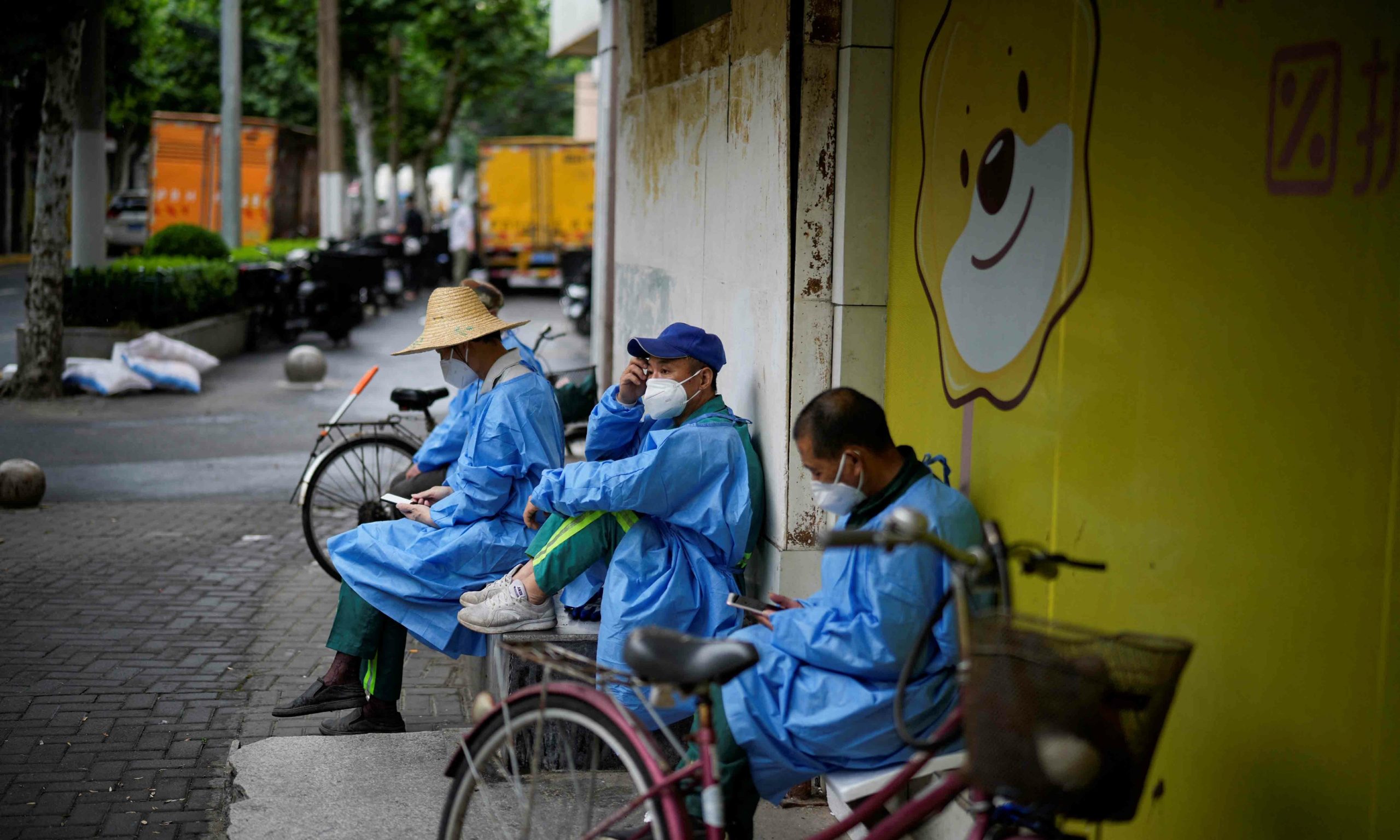
Shanghai aims to essentially end its lockdown from Wednesday after relaxing restrictions over the last week. More people have been allowed out of their homes, and more businesses permitted to reopen, though most residents remain largely confined to their housing compounds, with shops mainly limited to deliveries.
Shanghai officials urged continued vigilance, even though the vast majority of its 25 million residents live in areas that are in the lowest-risk “prevention” category. “Wear masks in public, no gathering and keep social distance,” Zhao Dandan, deputy director of the Shanghai Municipal Health Commission, told a daily news conference.
Videos on social media showed revellers including many foreigners drinking and dancing in the street in a central area of the city before police interrupted and told them to go home.
Another video showed a group in the street singing an emotional 1985 pop anthem called “Tomorrow will be better”, accompanied by a keyboard player. Police can be seen arriving and allowing the song to finish before asking the people to go home, prompting online praise for the officers’ restraint.
The two-month lockdown of China’s largest and most cosmopolitan city has frustrated and infuriated residents, hundreds of thousands of whom have been quarantined in often crowded central facilities. Many of them struggled to access sufficient food or medical care during the lockdown’s early weeks.
In Beijing, new cases have trended lower for six days, with no fresh infections outside of quarantine areas reported on Friday. The outbreak that began on April 22 is “effectively under control”, a city government spokesman told a news conference.
Starting on Sunday, shopping malls, libraries, museums, theatres and gyms will be allowed to reopen, with limits on numbers of people, in the eight of Beijing’s 16 districts that have seen no community cases for seven consecutive days. Two of the districts will end work-from-home rules, while public transportation will largely resume in three districts including Chaoyang, the city’s largest. Still, restaurant dining remains banned city-wide.
While nationwide case numbers are improving, China’s strict adherence to its “zero-Covid” strategy has devastated the world’s second-largest economy and rattled global supply chains.
Investors have been worried about the lack of a roadmap for exiting what has been a signature policy of President Xi Jinping. The economic impact was evident in data on Friday showing April profits at industrial firms fell an annual 8.5pc, the biggest drop in two years.
China’s approach, which it says is needed to save lives and prevent the health system from being overwhelmed, has been challenged by the hard-to-contain Omicron variant.






